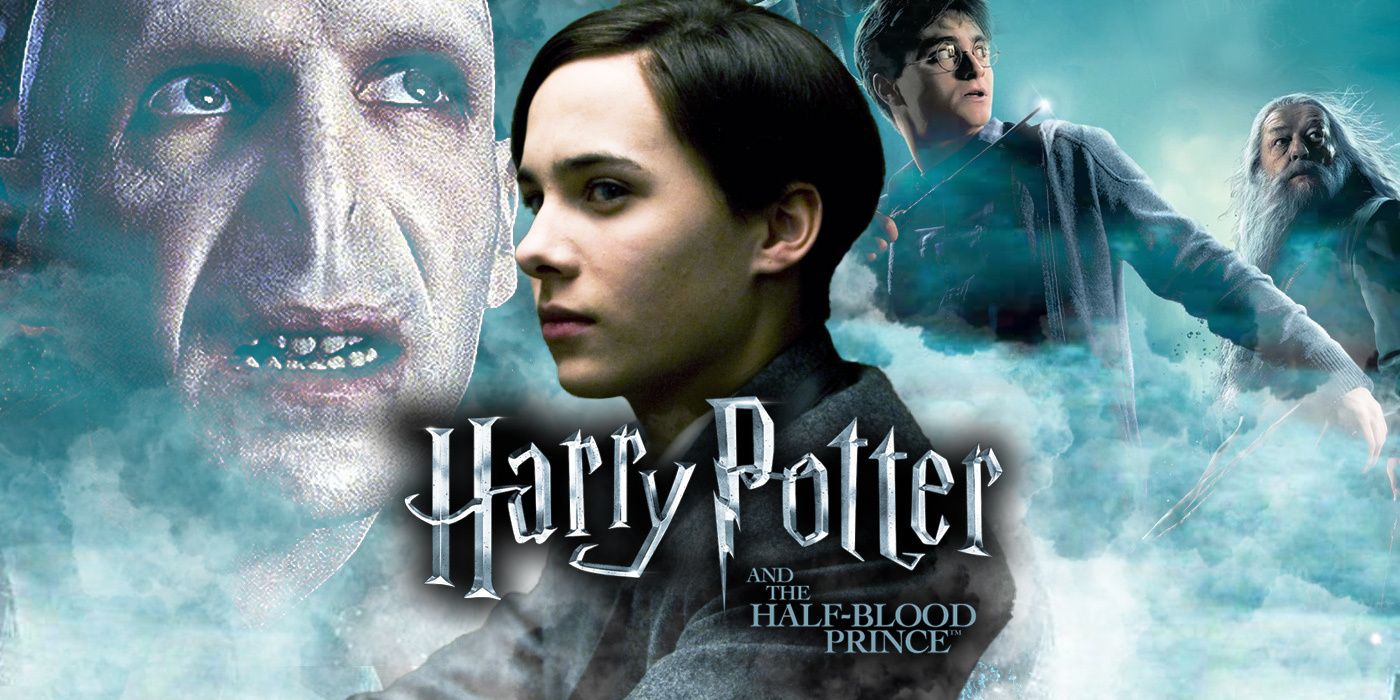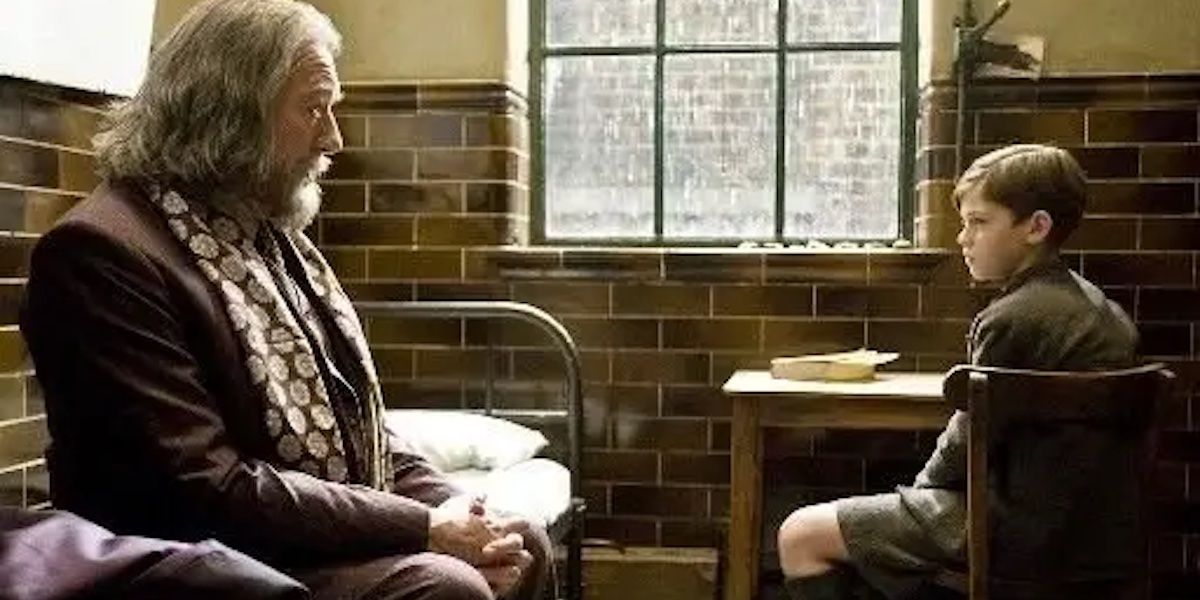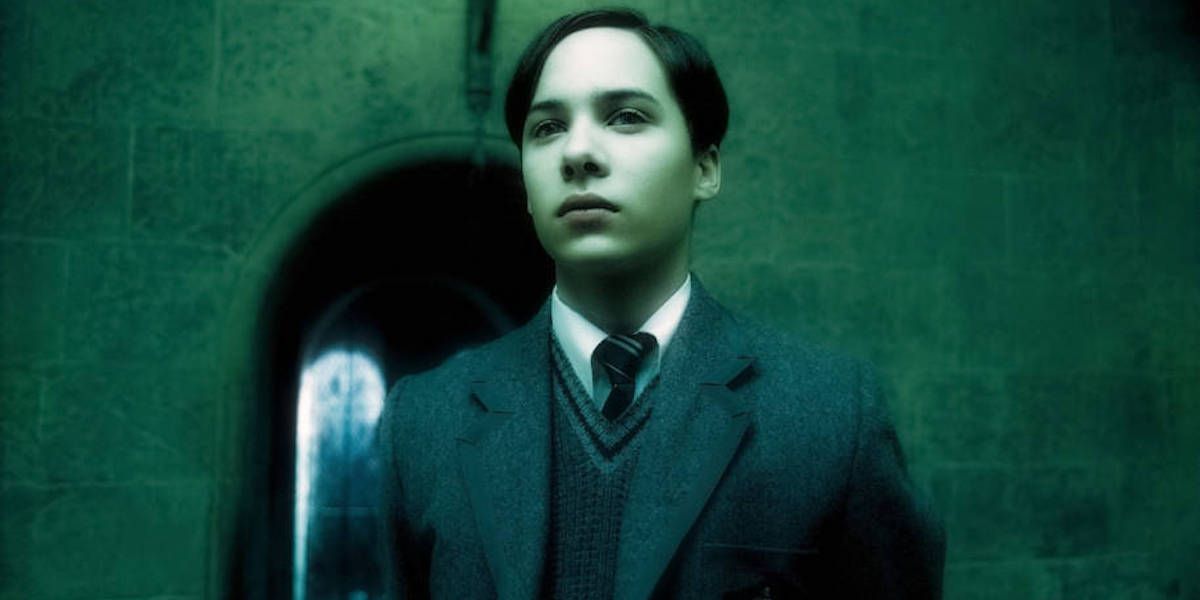Changes are expected when a book makes the jump from page to screen, though it can be hard to reconcile when it's a property as beloved as the Harry Potter series. Each of the 7 volumes is fairly hefty, with the majority of the installments clocking in at over 600 pages. That's a lot of story to fit into a 2-hour film adaptation. The films do a decent job of incorporating the books' main characters and plot points, though there are some that are eliminated to their detriment. This is especially true in Harry Potter and the Half-Blood Prince. One of the biggest crimes the film adaptation commits is its omission of many of the book's flashback sequences regarding Tom Riddle (the eventual Dark Lord himself) and his family.
For any self-respecting Harry Potter fan, it's inconceivable that these scenes were cut. After all, they're arguably the most interesting part of the sixth book, especially considering readers had been waiting for years to get answers regarding Tom Riddle's family and backstory. While it makes sense that the book's extended flashback sequences were streamlined for time (the film is 153 minutes long), paring them down so significantly was a mistake. They are crucial to the film, and the series itself, in unpacking Riddle's psychology and understanding the mysteries behind his darker tendencies.
What the film fails to include is something that's crucial to the book and understanding Tom: his hatred. Hatred for his bloodline, his parents, and even himself. In one of the book's flashbacks, it's shown that his mother was a witch while his father was a muggle, revealing that Tom himself is only a half-blooded wizard. Here, a piece of the Voldemort puzzle clicks into place as we understand that his hatred and disgust for his own status as a half-blood is what causes him so much hatred towards other half-bloods like him. He seeks to destroy in others the part of him that he hates in himself. But because we aren't afforded this context in the film, the pair of brief flashbacks of Tom as a child don't pack as big of a punch.
But in the book's glimpse into the past, readers are provided with the crucial knowledge that Voldemort's hatred and unquenchable thirst for power didn't spring up overnight; rather, it had been building all throughout his childhood and adolescence. It turns out that Tom actually sustained quite a bit of trauma from his muggle father abandoning his mother. After all, how could someone as unexceptional as a muggle willingly leave someone as remarkable as a member of the wizarding community? Tom's rage builds until it leads to him finally murdering his father and grandparents. It's an act of revenge against his father for abandoning him, while also serving Tom's goal to eliminate the muddied Riddle bloodline for good.
Besides the act of murder itself, this glimpse into the past is also crucial because it shows just how sociopathic Tom is — something that's not immediately clear in the film. Not only does he murder his family, but he frames his Uncle Morfin for the dark deed by stealing his wand and implanting his mind with a false memory of the action. Here, the manipulative Tom not only breaks the law and shows an extreme disregard for the safety and wellbeing of others, but solidifies his dominant character traits of hostility and deceit.
Riddle-turned-Voldemort is a terrifying villain. Understanding what makes him tick, however, makes him downright chilling. Especially because he's more human than we first realized. The film adaptation of Half-Blood Prince had the opportunity to really dive deep into his three-dimensionality to make him more than a generically evil Big Bad, but chooses not to utilize it. Instead of granting viewers insight into his past — the how and why of his transition to one of the most powerful wizards of all time — the film settles for a pair of minute flashbacks that cause the film to lose its narrative juiciness. Yes, the plot is trimmed, but does it matter if the threat hanging over Harry and his friends doesn't seem so...threatening? If the book's meaty flashbacks had been incorporated, the film would have provided the deeper context to understanding Voldemort and the rationale behind his actions.
While you'd need Hermione's time-turner to go back and include these scenes in the film, fans looking for answers about Lord Voldemort's backstory can always return to the books. And that's something that both muggles and wizards can enjoy.



